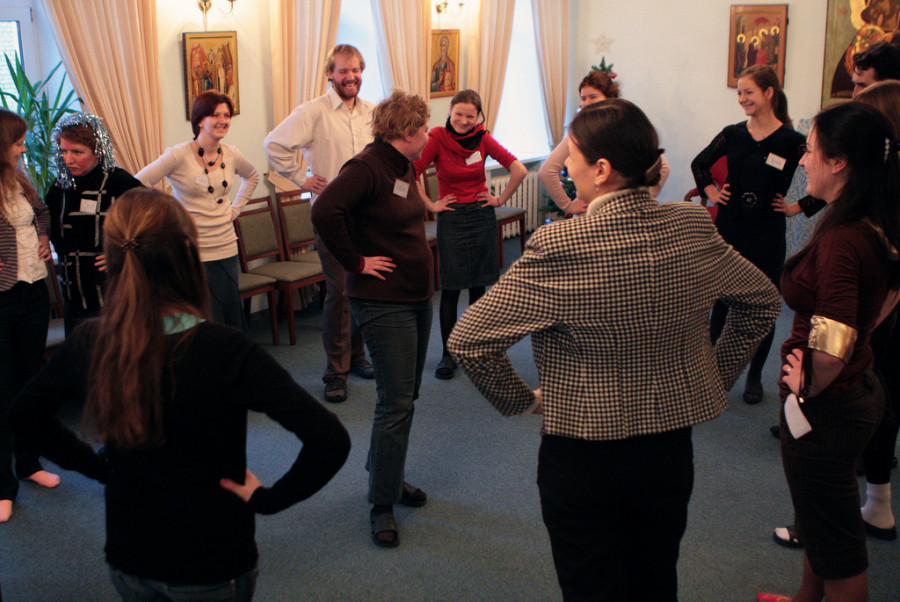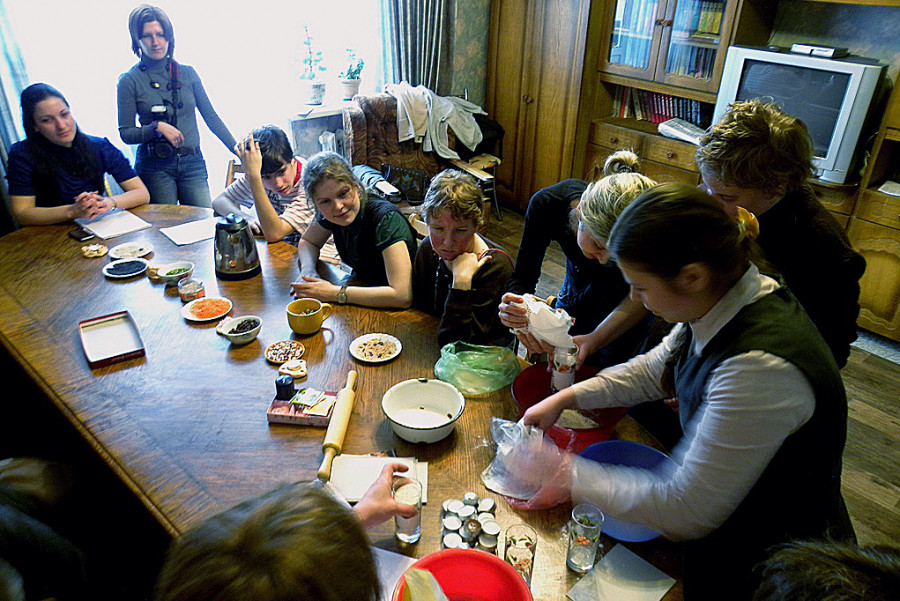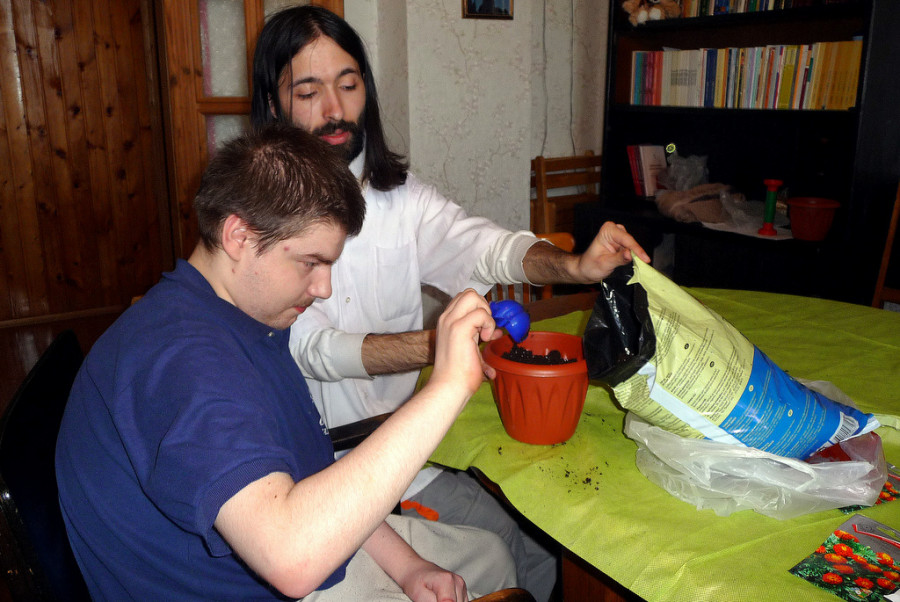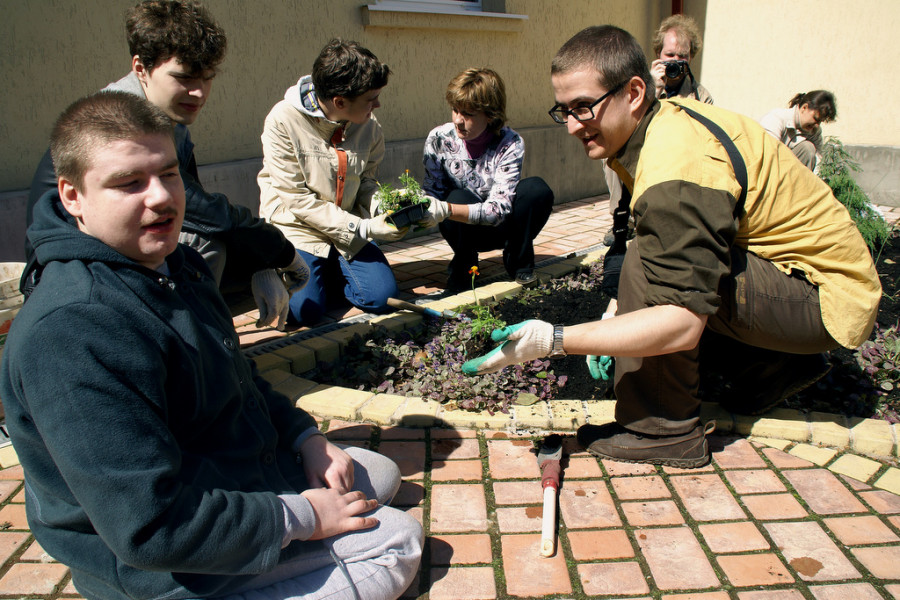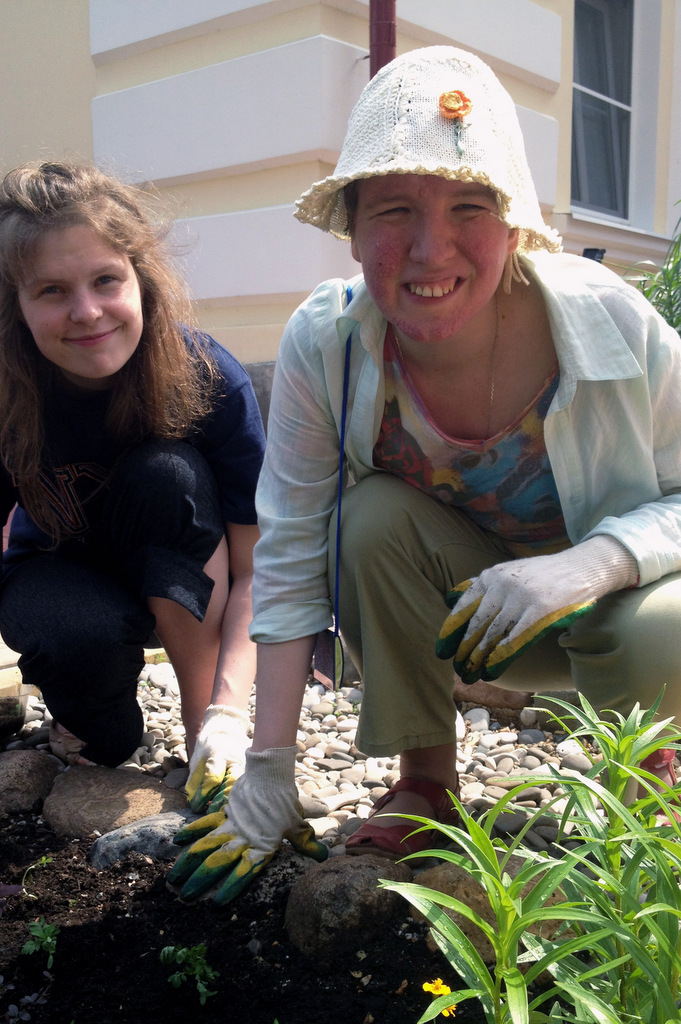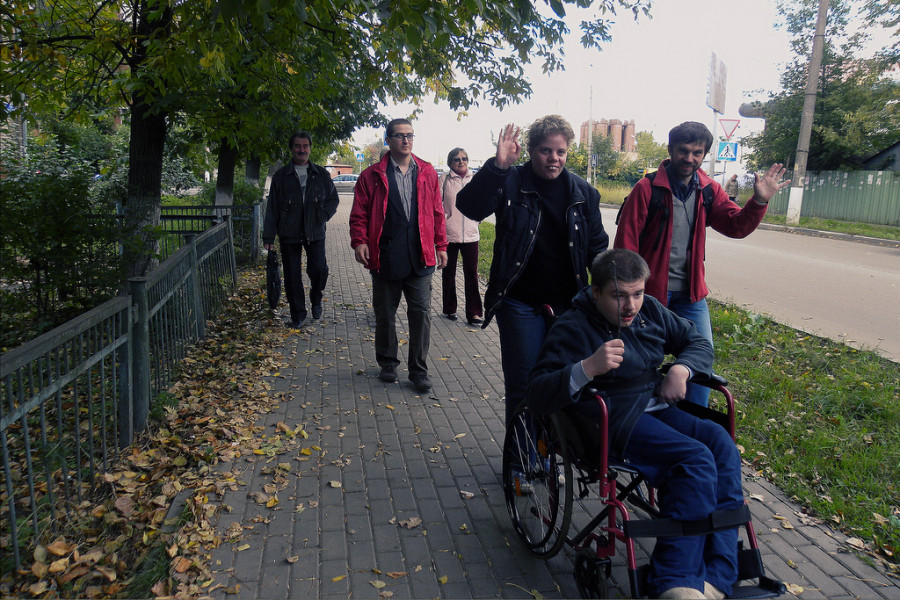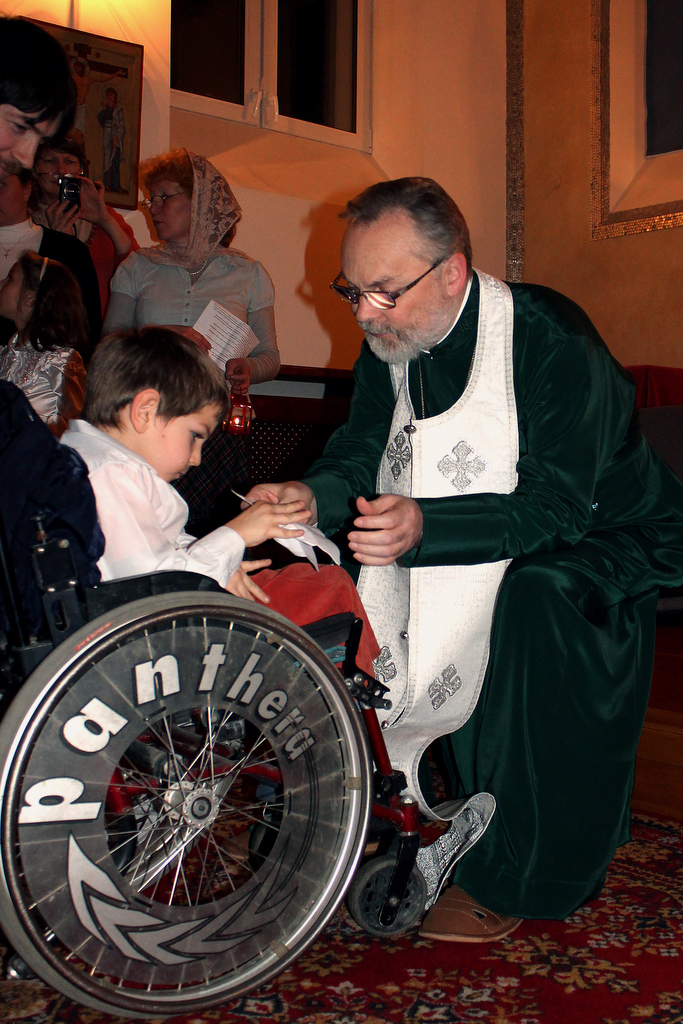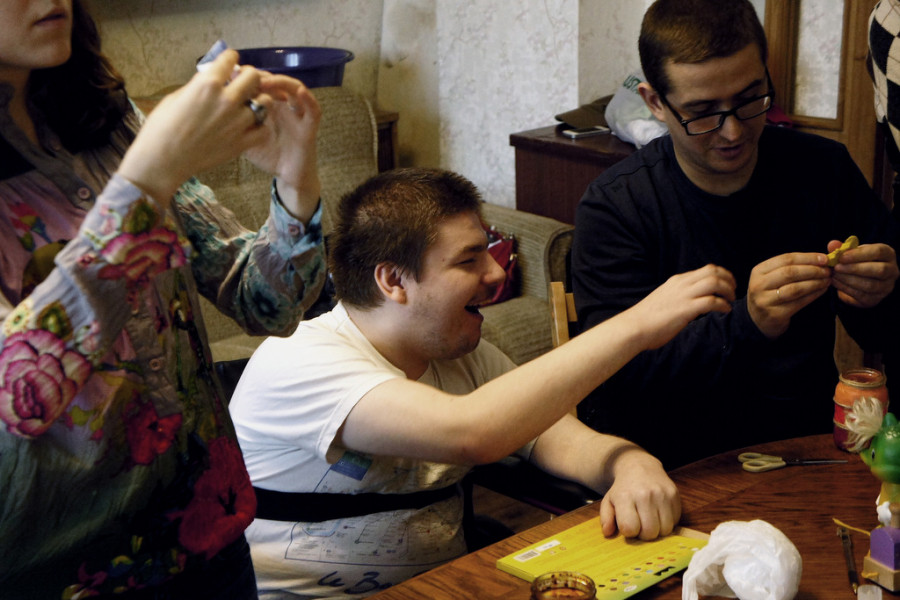Gathered Together for One and the Same Purpose
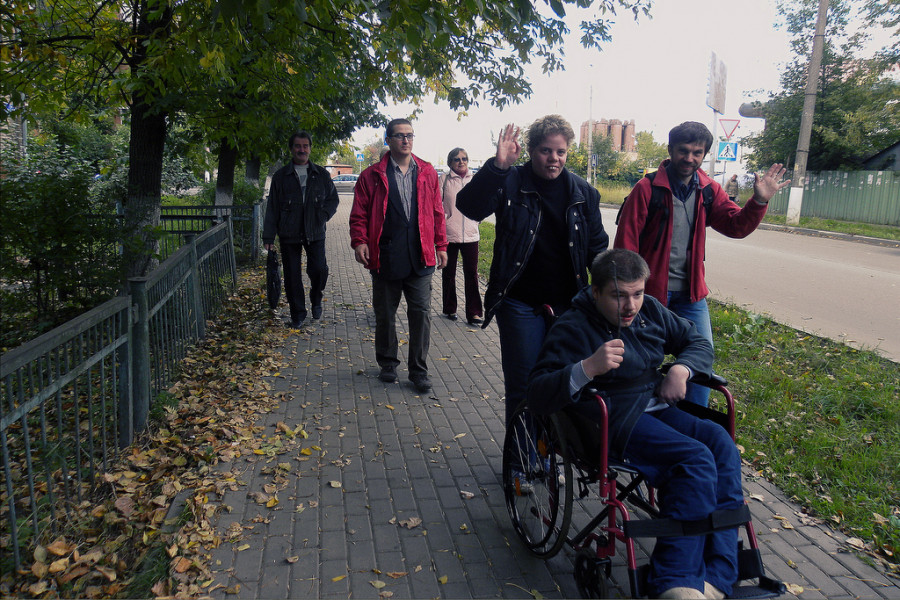
This paper was presented by Svetlana Sonina at the 22nd International Educational Christmas Readings (Moscow, 26-29 January 2014).
What kind of a church life can be enjoyed by people with limited capabilities? Svetlana Sonina, leader of the “Special Group” of the Transfiguration Brotherhood, answers this question in her paper entitled, ‘The Principles of Assisting the Disabled within the Church Community: the Experiences of the Transfiguration Brotherhood’s “Special Group.”
The Special Group within the Transfiguration Brotherhood in Moscow has been in existence since March 2011. It helps children and young people with severe developmental disorders (autism and its comorbidities), whose parents belong to the Brotherhood. Currently, the group helps one 8-year-old child and four young people aged between 18 and 30. In addition to children and their parents, the group incorporates a leader and some assistants. All the children and their parents are also involved in the life of various small church groups and communities within the Transfiguration Brotherhood.
The Special Group is an additional form of “common life”, which creates conditions for these children. The group meets once a month. We also visit the children at home, take them on walks, invite them to some of the Brotherhood’s youth gatherings, etc. Special Group meetings include a brief prayer, private theatrical productions of artistic works on moral and spiritual topics (followed by discussion), handicrafts, refreshments and singing accompanied by guitar. Once a year at Christmas or on New Year’s Eve, the group goes on a two-day pilgrimage along with invited guests. Every 8 or 9 months the Brotherhood arranges special confession for these children and their parents and caregivers.
Principles of Life in the Special Group
We try to follow the ancient church principle “ἐπί τὸ αὐτό” – “gathered together for one and the same purpose.” Special efforts must be made, so that people with limited capabilities and their families can be involved in the life of the church community together with everyone else. We must:
- assist people with limited capabilities to participate in all aspects of community life;
- share the care burden with parents or relatives so that they themselves can fully take part in sacraments and pilgrimages, receive spiritual education, assist in church ministries, etc.;
- help other community members who do not have special experience living and working with people with special needs to understand how to communicate, pray, and work together with them.
It is important for members of the church community to regard people with limited capabilities as brothers, sisters and friends, rather than as “objects in need of assistance.” Things go best when the church community or the special group within it puts its focus and purpose squarely on life based in Gospel principles and common church ministry, rather than positing the special needs individuals themselves as the focus of the group’s activities. We must help the person with limited capability share in the life of the wider community.
Every human being acquires dignity when he or she not only receives, but also gives. The children of the Special Group make handicrafts for others, such as souvenirs for charity fairs and gifts for those who host us during pilgrimages. They also grow flower seedlings for planting in the yard of the cultural and educational centre, etc. When possible, these children with developmental peculiarities also help each other.
It is not possible to draw conclusions regarding the spiritual experience of a person with intellectual and mental disabilities solely based upon his or her behaviour, level of speech development, observed intellect or productive activity. It doesn’t mean that someone isn’t participating just because he isn’t speaking, reasoning out loud or showing active involvement. This approach helps us to find appropriate forms of engagement in sacrament, prayer and catechesis for people with special needs. For example, we have managed to find a form of the sacrament of Repentance/Confession that supports the participation of non-verbal children – those who are able only to utter the odd sound or word, or who cannot fully make use of speech. The Special Group meets on the day before the scheduled confession, reads a suitable fragment from a literary work or from Scripture and talks about repentance. What sort of things do we do that make us feel sick at heart and ashamed? How can such behaviour can be put right? And how can God helps us in this task? As we speak about repentance, we try to avoid moralizing insofar as is possible and seek to appeal to the children’s own experience. After the meeting, parents continue the conversation with their children at home and write out their confessions. Out of the five special needs members of our group, only one can prepare his own written confession. The kids can express their agreement or disagreement with what is included in their written confessions, and their parents take this into account. Immediately before confession we read a short prayer rule, which was composed specially with the purpose of preparing the Special Group for confession. The children, their parents and assistants together participate in the confession process. Some of the children are not able to approach the priest by themselves and are helped by their parents. The priest talks to each of the penitents about his or her written confession, taking his clues from their various reactions such as how they look and how they express what they are going through internally in gestures and mimicry. He then recites the prayer of absolution.
Such efforts support the involvement of all our special needs brothers and sisters in the sacrament of repentance – each according to the best of his own abilities. Some make their confessions only with the Special Group and others more often. They have a different rhythm of coming to Holy Communion – some come once a week and others only once a month. Our special needs brothers and sisters are not required to make their confession every time before taking communion, with the exception of one girl, who herself feels the importance of confession before every Eucharistic liturgy.
Our Achievements
The changes these young people have experienced in their lives can be illustrated by the example of Yegor. When our group was launched, Yegor was 21 year old. When he was a child, different organisations offered help to him for short periods of time, though by the age of 21 this was all long in the past. Yegor did not generally get out of the house because his wheelchair was too heavy for his mother to take him out of doors by herself. Once every two months he was taken to church and he was taken to medical examinations when necessary. On each occasion Yegor’s mother had to request support. She also considered prayer at home together with Yegor to be a practical impossibility. Nor could his mother leave home for longer periods of time. Yegor spent his first Christmas holiday in the corridor, watching the festivity from the outside.
Now Yegor has got friends among our youth. Every week he goes out for walks with them and eagerly awaits their arrival. Yegor utters only individual words and sounds, but his vocabulary is increasing due to the fact that his social circle has expanded. His old vocabulary no longer suffices for the new kinds of activities in which he is involved. Yegor is more and more involved in the common life of our group. He takes communion more often – now once a month. In church more and more people greet and speak with him and congratulate him after he has taken communion. Of course these people include our special needs group. Yegor’s mother has began to pray with him at home. He himself demands everyday prayers and asks his mother to pray for his friends, to whom Yegor refers collectively with the sound “mai”. Yegor’s mother has also realised that others besides her could stay with Yegor if she wants or needs to leave home for a longer period of time. Now it is easier for her to go out. She is glad now to have the opportunity to help with various activities in her church community; she compiles and keeps the archives for the cultural and educational centre. Both Yegor and his mother have been strengthened in faith, trust, and communion with God and neighbour.
In our view, an approach which integrates people with limited capabilities (independent of their number) into their existing community – rather than segregating them and bringing them together in a purpose-designated church or community – can really bear fruit. Every church community is capable of accepting the people whom the Lord gives us as neighbours. Every community is capable not only of having compassion on people with disabilities and their families, but also of helping them to fully participate in church life.
